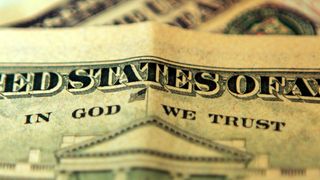Compared to Australia, the United States has a trust problem. Recent polling by YouGov for the United States Studies Centre, surveying both Australians and Americans, showed Australians consistently reporting higher levels of trust than Americans. It didn’t matter what we asked about — the national government, state governments, family and friends, media, political parties — Australians appear to be more trusting of our institutions than Americans are of theirs.
Citizens in both Australia and the United States report having significant trust issues with their federal governments. Only 21 per cent of Australians think that the Australian Government can be trusted “to do what is right” more often than not. The rate is significantly lower in the United States: just 8 per cent of Americans trust their federal government to do the right thing all or most of the time. Sixteen per cent of Australians and 22 per cent of Americans say the federal government can never be trusted.
Only 21 per cent of Australians think that the Australian Government can be trusted “to do what is right” more often than not. The rate is significantly lower in the United States: just 8 per cent of Americans trust their federal government to do the right thing all or most of the time.
When we asked about institutions and groups important in both Australian and American society – including family and friends, university researchers, different types of media, government agencies and politicians – Australians report much higher levels of trust than Americans. Averaged across the ten groups and institutions we asked about, 56 per cent of Australians reported having a little or a lot of trust in these pillars of our communities. The corresponding figure was 43 per cent in the United States, a difference of 13 points between the two countries.
This lower level of trust that we observed in the United States across institutions largely stemmed from the exceptionally low levels of trust in institutions expressed by our Republican respondents. Both Democrats and Republicans were equally likely to trust family and friends, but they differed markedly when evaluating key institutions of society. Of the ten we asked about, on only one – family and friends – did a majority of Republicans say they had a little or lot of trust.
Republicans even reported low levels of trust in their own party and its elected officials. Only 9 per cent of Republicans said they trusted the federal government to do the right thing always or most of the time, despite their party controlling all three of its branches: the executive, the legislative and the judiciary. This mistrust of government is likely derived from their general mistrust of social institutions, which goes as far to their own party and its politicians, with fewer than half of Republican voters indicating they trusted Republican politicians a little or lot; who as a result were the second-least trusted group in our survey.
By contrast, Coalition supporters in Australia were nowhere near as hostile towards these institutions and groups. While we did find that Coalition voters were less trusting of, for instance, the ABC when compared with Labor voters, the difference was just 13 per cent, compared to the 45 per cent deficit of Republicans versus Democrats. Similarly, Coalition voters were only eight points less trusting of university researchers than Labor partisans, while Republicans were 41 per cent less likely to express any trust in this group. Conversely, Coalition voters were more trusting of newspapers and commercial television news than Labor voters, while Republicans were 43 per cent less trusting of TV news and 50 per cent less trusting of newspapers, than Democrats.
Republicans even reported low levels of trust in their own party and its elected officials.
These findings are likely both a symptom and a cause of policy gridlock in the United States. Ronald Reagan’s memorable insistence in his first inaugural address that "government is the problem" remains central to Republican thinking. This has been aggravated over several decades by Republican critiques of important social institutions, such as the Supreme Court for forcibly ending racial segregation in the South, and the mainstream media for a perceived liberal bias.
Generally speaking, Australian conservatism — like most conservative political movements in the democratic world — is less radical than American conservatism.
The great question these findings pose to American policymakers is, how well can America’s great institutions work if half or more of its population have so little trust in them? It also forces America’s friends – like Australia – to ask how this low level of trust will influence US governance into the future, including its ability to pass a federal budget and fulfill its foreign policy commitments.







